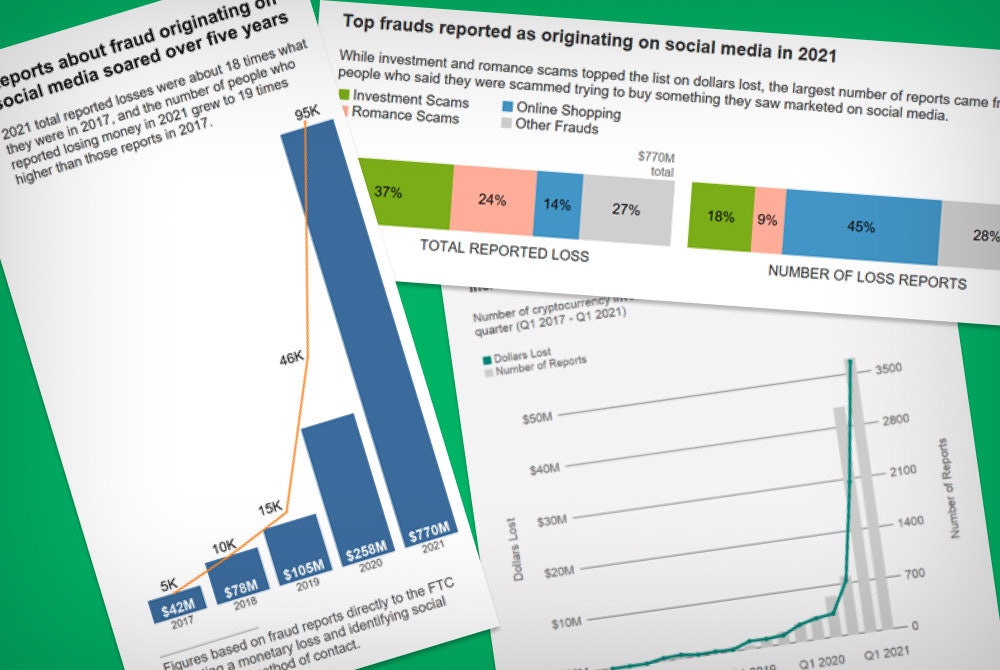- What Are Social Media Scams?
- 2021 Social Media Scams
- Why Social Media?
- Protect Yourself from Social Media Scams
A recent report by the Federal Trade Commission (FTC) reveals that scams originating from social media platforms increased exponentially in 2021, jumping from 46,000 reports in 2020 to 95,000 reports in 2021.
Up from $258 million in losses in 2020, social media users reported losing about $770 million in 2021, with those aged 18-39 most likely to fall for these scams.
What Are Social Media Scams?
Social media scams are any kind of fraudulent activity that occurs on any of the platforms, including:
They can begin as:
- Ads
- Posts
- Direct messages
Investment Scams on Social Media
One of the most common scams people fell for on social media was investment scams, particularly cryptocurrency investment scams, which have been steadily increasing since October 2020.
Scammers will promote their fake investment or cryptocurrency schemes on social media, luring victims to send their money. However, once the money is deposited, there is no return, as promised, and the victims are left without their money.
In some cases, scammers will try to get more money out of you by sending you a small return at the beginning. They do this to build trust and make you invest even more with them. Once they have received a more significant sum of money from you, they will disappear with it.
2021 Social Media Scams
| Type of Scam | Total Reported Loss (of $770 million) | Number of Loss Reports (of 95k) |
| Investment | 37% | 18% |
| Romance | 24% | 9% |
| Online Shopping | 14% | 45% |
| Other | 27% | 28% |
Why Social Media?
Scammers have likely chosen social media as their new platform of choice, over emails and phone calls, due to the very public and free nature of social media. Scammers can:
- Create fake profiles for free
- Contact people for free
- Find out personal information about people easily
- Place legitimate-looking ads for a small fee
- Find easy targets
In addition, scammers know that people spend hours on social media. While many of us have become savvy to phone scams, refusing to answer calls from unknown numbers, scammers can get their messages to you on social media quite easily and quickly.
Protect Yourself from Social Media Scams
When using social media, it’s best to follow these best practices to help you stay safe from scammers:
- Keep your profile private (or at least limit what you share with your followers).
- Don’t share any sensitive information on social media (e.g., your address, bank account information, Social Security number).
- Don’t engage with people you don’t know (including via direct messages).
- Don’t trust all messages you receive, even if it’s from someone you know (and especially if they’re asking for money).
- Don’t share compromising information or photos with anyone.
- Do your research on companies before making a purchase.


Comments